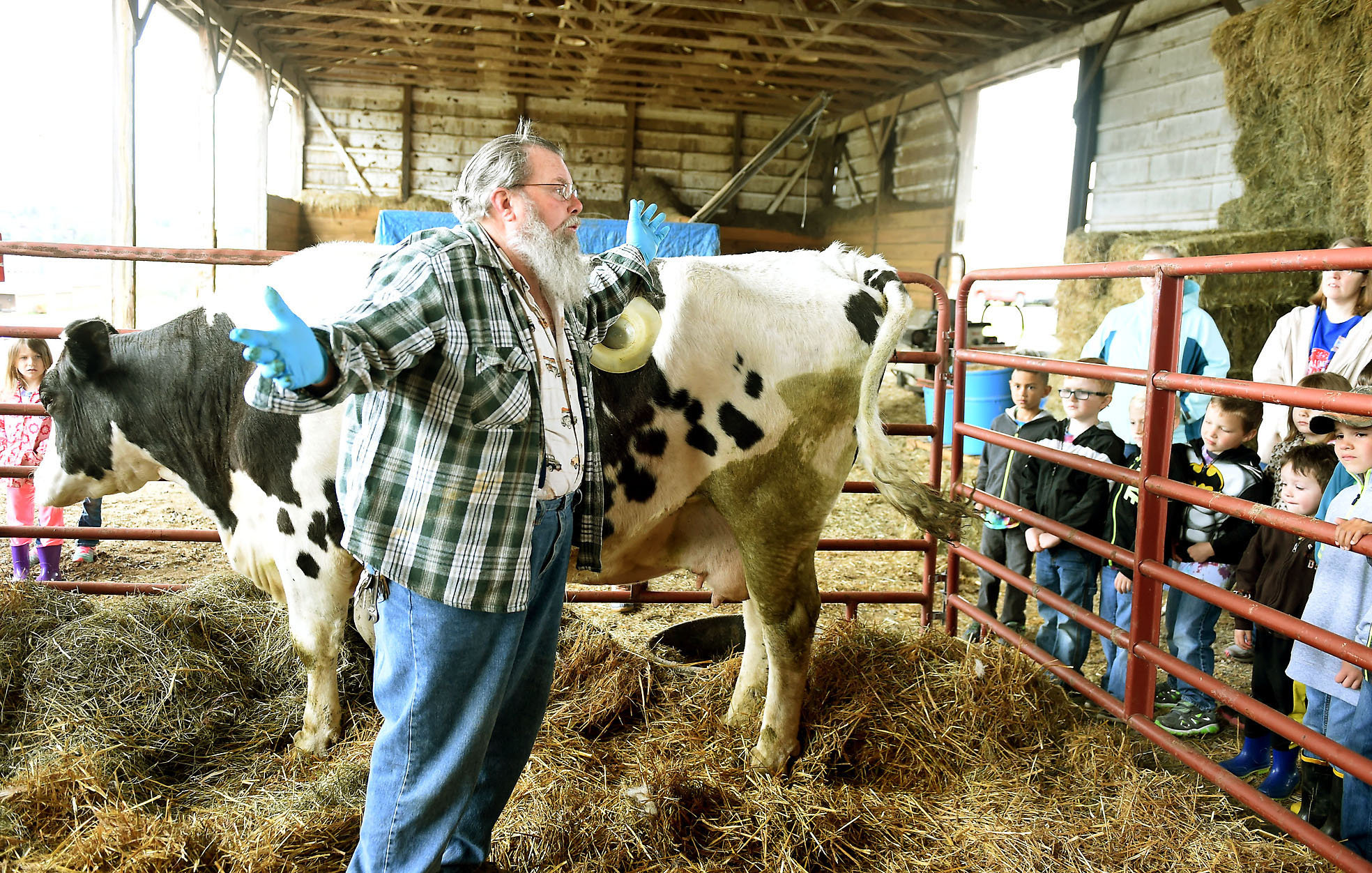MORGANTOWN — Ken Blemings, interim dean of WVU’s Davis College of Agriculture, Natural Resources and Design, said the recent decision to sell off the university’s herd of dairy cattle was based on a combination of financial and academic factors.
Blemings explained the dairy cows are very lightly used in terms of research and teaching, making the $150,000 annual expenditure on the herd a unwise use of resources.
He said conservative estimates put the cost of keeping the herd at around $250,000 annually, about $100,000 of which is offset through the sale of milk produced by the animals.
“The farms are research and teaching labs. While we don’t necessarily expect that we’re going to make a large amount of money on our animals, nor can we afford to lose a great deal of money on our animals,” Blemings said. “I think the loss on the dairy cows was significant to where it warranted this decision.”
Matthew Wilson, associate dean for programs with the Davis College, said there are 41 mature, lactating cows in the herd — 31 Holsteins and 10 Ayreshires — all of which live at WVU’s Animal Science Farm, on Stewartstown Road.
While Wilson said a value of $700-$800 per animal is a reasonable estimate, he cautioned that it’s difficult to predict value before the animals are up for sale.
It was explained that there have been a number of inquiries from interested parties, “but we are still finalizing the dispersal process.”
As an educational resource, Blemings said the dairy cows are only used during part of one class for agriculture education students. Otherwise, he explained, the only students coming in contact with the animals are the student workers who get paid to collect the milk.
“We have no class that says we must use these lactating cows for any formal coursework,” Blemings said. “In fact, our milk production course has not used our cows for some years. They travel to outside dairies.”
Looking specifically at the Ayreshires, Blemings said the university was gifted cows years ago with the stipulation that it endeavor to promote the breed, which he said the school has done for more than 100 years.
“I think we would all agree that 100 years is a reasonable endeavor,” he said.
The announcement prompted responses from the agriculture community, including Monongalia County Commissioner Ed Hawkins who said he was saddened by the news.
“I grew up the son of a dairy farmer, the grandson of a dairy farmer and this hits home very hard for me,” Hawkins said, later expressing his fear that the move is an indicator of declining support from the university for its farms.
Blemings said the sale of the herd isn’t tied to any future sale of property. He noted the Stewartstown Road farm will continue to have cows, sheep and poultry that serve its research mission.
“There are no plans to sell any of the farms or forests at this point in time and we will continue to evaluate the use of all our resources,” Blemings said.
When asked for comment, West Virginia Agriculture Commissioner Kent Leonhardt’s office issued the following.
“It’s unfortunate WVU had to make this decision but we understand why they did. Nationally, the dairy industry continues to struggle. We must all work to find a way to reverse this trend.”




